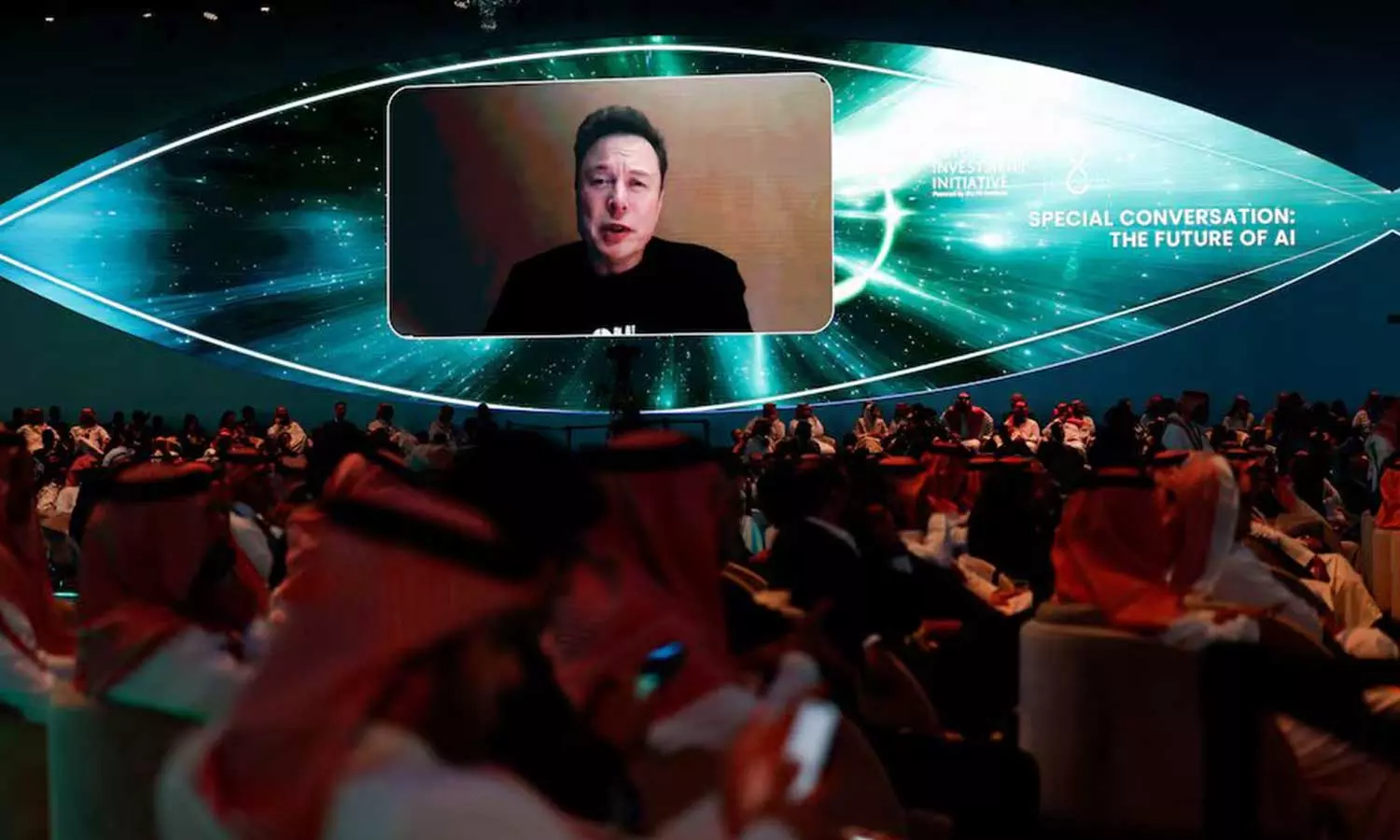
Elon Musk Foresees 10 Billion Humanoid Robots By 2040; Unveils Vision At Future Investment Initiative In Riyadh
 |
|Musk expressed concerns about the growing influence of political correctness on AI systems, suggesting it could interfere with their objectivity.
Riyadh: Tech magnate Elon Musk has made a bold prediction at the 8th Future Investment Initiative (FII) conference in Riyadh, Saudi Arabia, forecasting that by 2040 there will be at least 10 billion humanoid robots globally, each priced between $20,000 and $25,000. Speaking on the implications of this technological surge, Musk emphasized how the integration of humanoid robots could significantly reshape labor and economic landscapes, noting that careful oversight of AI's growth is essential.
Highlighting his efforts to align AI development with humanity's best interests, Musk discussed his recent establishment of XAI, a company dedicated to advancing AI in a safe and ethical manner. In addition to robotics, he touched on progress in autonomous driving, predicting “unsupervised self-driving” capabilities could be operational in the U.S. as soon as next year—a milestone that would represent a leap forward for the automotive industry. Musk envisions all vehicles becoming autonomous, with safety levels ten times higher than those of human drivers.
Musk expressed concerns about the growing influence of political correctness on AI systems, suggesting it could interfere with their objectivity. He illustrated this with a controversial example, where an AI model rated misgendering a reality TV star as a greater threat than nuclear war. He argued that such programming biases could distort AI’s truth-seeking functions.
Space exploration was also a key theme, as Musk expressed optimism that starships might reach Mars within the next two years. He encouraged global collaboration in AI, stressing the importance of nations building their own AI clusters to foster innovation and resilience.
In his concluding remarks, Musk touched on a topic close to his heart: humanity’s future. Citing concerns over declining birth rates, he warned, “If we don’t produce new humans, there’s no future for humanity, and all the policies in the world won’t change that.” His statement underscored a broader call to action on sustaining the human population as technological advancements continue to evolve.
The Future Investment Initiative conference, which runs through the end of the week, has drawn world leaders, tech innovators, and investors eager to discuss the rapidly changing global landscape and the role of technology in shaping it.